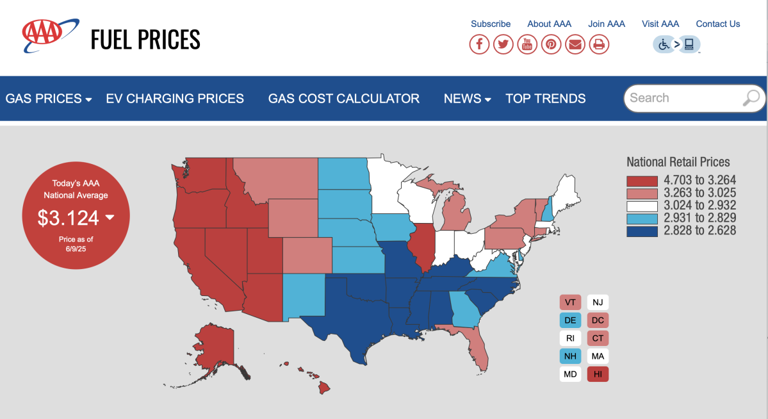(Bloomberg) -- Forecasters say underlying US inflation likely picked up in May, reflecting a modest impact from tariff pass-through for goods that are mostly imported, while some services like airfares saw smaller price gains or outright declines.
The consumer price index is seen rising 0.3% from April after increasing 0.2% the previous month, excluding the volatile food and energy categories. On a yearly basis, the estimated 2.9% increase would mark a reversal of a downtrend so far this year, based on the median forecast in a Bloomberg survey of economists.

“Only a few goods prices likely rose as a result of the new tariffs in May — June will be a different story — while some providers of discretionary services probably cut prices or kept them low to sustain demand,” Pantheon Macroeconomics economists Samuel Tombs and Oliver Allen said in a note.
The May CPI report by the Bureau of Labor Statistics is due Wednesday. Here’s what to expect:
Goods Inflation
Economists have been monitoring how higher costs from the trade war initiated by the Trump administration’s tariffs are being passed along to consumers. The impact has been minimal in the CPI report through April as businesses absorbed some of the costs and relied on inventories bought before higher levies were in place.
But companies including Walmart Inc. have since said that they would start increasing prices on some goods.
Tariffs should have a broader impact on the data than in April, when the clearest sign of duties-driven price hikes was the 8.8% monthly spike in audio equipment, Bank of America economists Stephen Juneau and Jeseo Park wrote in a note.
Other categories to watch are apparel, new cars and other heavily tariffed goods such as household appliances.
“Pre-tariff inventory building and hope that the current scale of tariffs may be reduced have helped to restrain cost increases thus far,” Wells Fargo economists Sarah House and Nicole Cervi said in a note. “That said, as the higher tariff regime persists, shielding consumers from the costs is likely to become more challenging.”
Federal Reserve Chair Jerome Powell and his colleagues have indicated they have time to assess the impact of trade policy on the economy, inflation and job market. The Fed is widely expected to leave interest rates unchanged at its meeting next week.
Services Weakness
Disinflation in services categories probably helped keep a lid on the overall CPI figures, according to forecasters.
Airfares and hotel prices have remained subdued in recent months, said BNP Paribas’ Andrew Schneider, adding he expects deflation for both in May. A decline in foreign tourism may be contributing to the softness, Schneider wrote in a note.
The drop in prices in some services categories are reflecting a pullback from consumers in discretionary spending, according to Anna Wong at Bloomberg Economics. She, too, expects a decrease in airline ticket prices.
“Consumers and the government sector have been pulling back on travel this year, and airfares continued their deflationary trajectory in May,” Wong wrote in a note.

